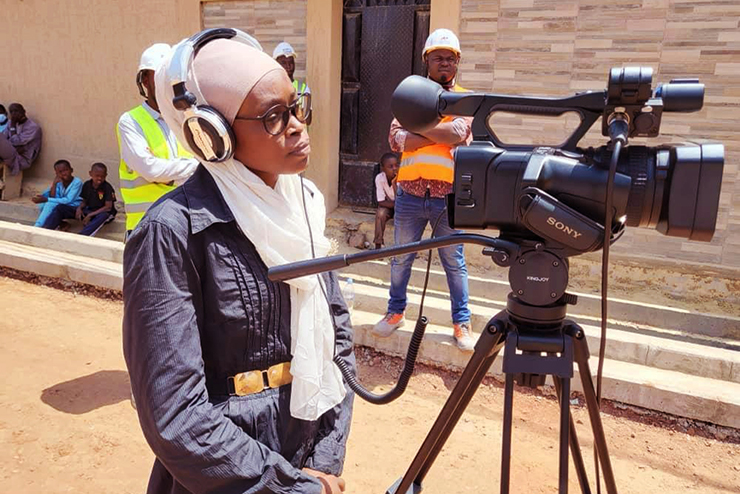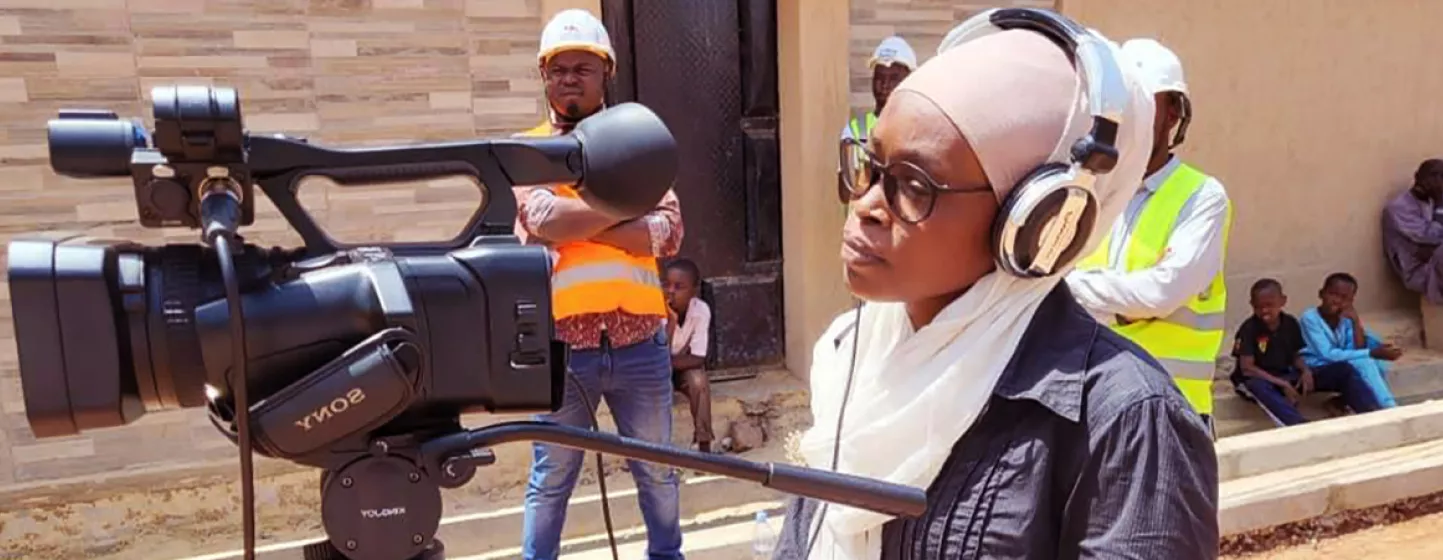“Afri’kibaaru has worked as a catalyst, strengthening the role played by female journalists in Chad”
Néné Fatimé Brahim, a young female (video) journalist from Chad, has been working for TchadInfos, an Afri’kibaaru partner media outlet, since 2022. A real all-rounder with a tireless passion for her profession, she has just participated in a cross-coaching course in N’Djaména, together with other journalists from Chad and Mauritania. Feedback.
What did you work on during this coaching course?
We spent seven days studying solutions journalism and the Sustainable Development Goals (SDGs). It was clear how committed the trainers are to promoting constructive journalism that aims to inspire positive change to tackle key global challenges.
Journalists from Mauritania and Chad came together to work. What were the positive aspects and difficulties of this collaboration?
This was my first experience with journalists from outside of Chad and it was very enriching. They introduced us to a range of working practices and showed real curiosity in understanding the situation in Chad. We were impressed by their responsiveness on the ground and their openness, qualities that we can adopt so as to implement a more global approach to our own work.
What surprised you about the way these journalists work?
Sustainable Development Goal (SDG) 4, which focuses on access to quality education, is essential for a sustainable future. It would be good to think about developing our reports on this key topic, to further raise awareness and promote concrete action to promote education for all.
After this coaching course, do you have any ideas for productions in line with the SDGs that you would now like to develop?
Our gratitude towards CFI and the trainers highlights the importance of ongoing training. Although this coaching course was short, we were able to profit from the perspectives offered by journalists from other countries. We would like to make a return visit to Mauritania to strengthen intercultural and professional links and promote closer collaboration and beneficial sharing of experiences.

How is it more complicated being a female journalist in Chad?
Being a female journalist in Chad can be very difficult. Chadian society tends to minimise the role of women in general, sometimes seeing them as “professional prostitutes” when they work as journalists. The worst part is that some press organisations seem to prioritise criteria other than skills and qualifications when it comes to recruitment, which highlights sexist and discriminatory stereotypes. It is sad to see that female journalists sometimes have to deal with degrading situations and additional pressure to gain employment.
Has the Afri’kibaaru project helped alleviate these difficulties?
For me, this project has had a significant impact for female journalists, highlighting SDG 5 which deals with equality between men and women. It has helped to give women a bigger role, even if we have not yet achieved equality. It has worked as a catalyst, strengthening the presence and role of women in journalism.
